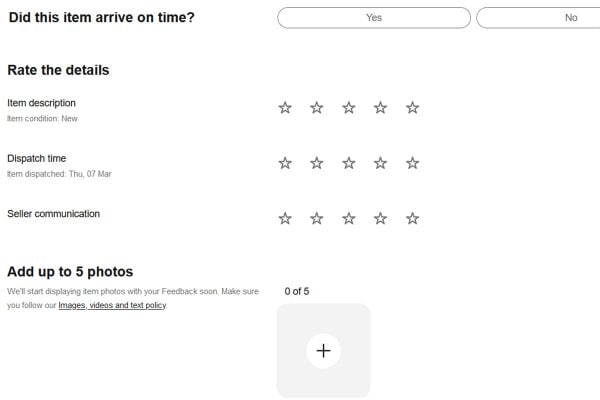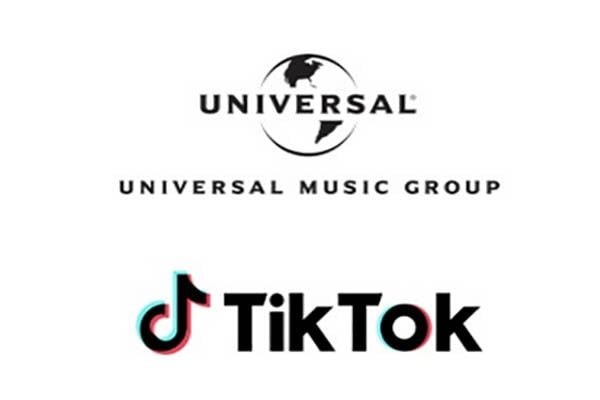Over the weekend quite a number of eBay sellers have been in touch with Tamebay regarding Product Identifiers (EANs, UPCS, GTINs etc) and saying they have been unable to list (or relist) their goods because they are not providing accurate details and opting to classify that which they are selling as “Does Not Apply.” The items in question seem to be specifically big brand items.
Ina Steiner at AuctionBytes has reported the issue too in a piece called: eBay Sellers Caught by Surprise over UPC Change.
It shouldn’t be too much of a surprise to Tamebay readers because we reported it the week before last. The article was called: eBay UK Product Identifiers Updates for Sellers. We also understand that eBay in the UK has sent two emails to sellers, in the month of August, about these requirements.
As Chris noted in that article: “There are some brands designated by Google that eBay will always require a GTIN for. Put bluntly Google has announced that they won’t be surfacing products from these brands in search results if they don’t have a GTIN so it makes sense for eBay to insist on them also.” In short, eBay wants eBay pages, and your listings, to perform as best they can in the world’s most powerful search engine. It seems unlikely that anything from these brands won’t have an GTIN available (even if it may sometimes be a chore to find it, especially if you’re selling second hand).
Here are the brands in question and what eBay says on this help page: “If you’re using any of the following brands, you’ll be required to add a valid GTIN: Acer, Adidas, Apple, Asics, ASUS, Audio-Technica, Beats, Belkin Components, Bose, Brooks, Brother, Calvin Klein, Canon, Columbia, Converse, Crocs, Disney, Epson, Fossil, Garmin, HP, JBL, Kate Spade, Lenovo, Levi’s, LG, Merrell, Michael Kors, MICHAEL Michael Kors, Microsoft, Motorola, Netgear, New Balance, Nike, Nikon, Nintendo, Oakley, Patagonia, Polo Ralph Lauren, Ralph Lauren, RCA, Rubie’s, Samsung, Skechers, Sony, Sperry Top Sider, The North Face, Toshiba, Under Armour, Western Digital.”
Whilst eBay has communicated these changes to sellers (although not with an official Announcement Board post, as AuctionBytes noted), it is hardly surprising that some sellers have missed the significance of this particular requirement. Emails are good but they are easily missed.
Every serious seller is a busy person and a great deal of email comes their way from eBay every day: what’s fluff and what’s vital? Perhaps a ‘red alert’ channel is required? A text message or even a call could be required for vital information like this.
Indeed, it is also August, so I’d hope that plenty of eBay sellers will be cheerfully supping a sumptuous frothy coffee, red wine or a cold beer somewhere sunny by the sea as a hard earned reward for a year of eBay graft.
Product identifiers are a big deal. eBay has been working towards them for several years. The rubicon has been crossed, they aren’t going away, but we understand the chore it is to make them work for hard-pressed retailers. How do you feel about Product Identifiers on eBay? Did you know about the brand requirement?











10 Responses
I’ve left ebay on one shop and not developing the other. The future of product identifiers on ebay is too uncertain, I currently don’t need to supply them, but don’t want thousands of items that need editing some time in the near’ish future. They should have made a decision (one way or another) a long time ago. The message I have is further changes may happen later down the line – not good enough.
my products dont appear on google, i’ve tried real hard to get ebay to care, they dont.
but they’ll completely block my listings from ebay, on the off-chance they may not appear on google.
ebay logic.
Absolutely atrocious communications on this change — I was caught on the hop on this one too. We now have a little under £30k of stock that is now not showing to eBay buyers.
I found an email buried in our customer service ticketing system which I had never seen before. But when I did look at it, it said that some of listings had a problem, but didn’t say what the problem was, or which listings it affected. It was sent just a couple of weeks ago — no indication what the problem was or how to fix it or indeed whether it was possible in that time frame. And because it went into our standard email address (we’ve received over 700 emails from ebay in the past week) it didn’t carry any urgency that meant it reached me.
I have no idea what eBay are thinking implementing this without any seller support whatsoever. Where are the tools? Where are the suggested solutions? Where is the consistent and clear policy? All the communications appear so vague so as not to “scare the horses” when what is really needed is a clear statement of what is happening that’s bad for sellers and when and then help.
As the poster says above — given the chance of not appearing on Google or definitely not appearing anywhere, eBay pick the second option and reduce selection available to buyers. Is eBay a true marketplace or just a business that buys Google traffic and sells it to its tenant shopkeepers?
So what happens with the big brand named products and goods that require these codes and boxes ticked that are resold by private Joe public who don’t know their eBay arse from their elbow
I am in the USA, and I am very certain that I did not receive any notifications from eBay. I read every message that comes from eBAy.
But then again I do not sell any of the aforementioned brands, so that might be the reason.
ebay have been promoting this for some time. why are sellers surprised? the deadline has been moved back numerous times. The “heads up” has been on every seller update for the past 2 years. messages have also been sent on ebay messages to sellers. It has also been a major topic of discussion on Tamebay. How can some sellers say they were not informed?!
Ebay tried to tell me 2 days ago that items that i have had listed in a certain category , were listed in the wrong section and they deleted them. I relisted them and told them they were wrong but they deleted them again.
After a 30 minute phone call , and talking to a supervisor , they admitted that they did not know what category the item should be in and told me to relist them where they were originaly
So question everything
Alan Peterson, et al,
There is no doubt that the deadline for getting Product Identifiers into listings for “new in box” items has long passed … sometime around Spring 2016, in the USA anyway.
And the fact that eBay is blocking Sellers now, who are just too lazy to enter the PI number, is perfectly reasonable.
However the matter is far from clear. Ebay employees have gone so far as to say that:
a. Sellers of used and vintage item should make an effort to find the PI codes, because Buyers will search by those numbers. (it is currently not possible to search by those numbers in the USA.)
b. Sellers of used good from the ’70’s & ’80’s should enter those codes despite the fact that those codes have expired and are no longer valid.
c. Seller produced items should have codes.
d. Sellers who source product from small foreign countries, where these codes are not used, are still expected to have codes.
e. Sellers who source products from US manufacturers, who do not provide codes, are still expected to have codes.
Where these codes are supposed to come from, is anyone’s guess.
Ebay stated a year ago that they would be developing a system to provide numbers for products without codes, but nothing has come of that.
And the problems go on and on …
An eBay employee on the team which is implementing this policy, solicited input from Sellers on this thread from the US eBay forums on Sept 18. The problems are very complex. And certainly this system is no where near ready to be rolled out. But yet they are doing it.
https://community.ebay.com/t5/Selling/Feedback-Needed-Using-eBay-s-Product-Catalog/m-p/27396752#M1029663
Although you make a very valid point I think eBay should be looking at the problem as a percentage – it just makes sense. This is just my thoughts – I dont represent ebay.
I am not sure how much of the eBay marketplace is covered by the criteria you mention above but I am sure it will be a minority. I think too many sellers look at ebay to solve the problems rather than looking at solutions themselves. You must admit that at least some of the points you have made above ARE solvable by the seller.
Remember eBay are having this imposed on THEM.
If I were eBay I would be looking at 95% plus of the marketplace to have product identifiers. That would be a good result – especially with the backlash from sellers who DO have the facility to upload EAN. It seemed like an impossible task at one point.
I think those sellers who do not come up with solutions may be casualties. To quote Star Trek (most things I learned in life I learned from Star Trek) “the needs of the many outweigh the needs of the few”. I don’t mean to sound “cold” but it is now starting to drag on and i would very much like my traffic from Google.
Off course ebay are trying to help and be patient to avoid caualties – they are just nice people – thats why we keep getting the deadline put back.